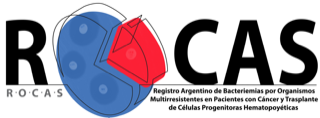General:
To characterize bacteremia by multi-drug resistant and non-multi-drug resistant organisms in cancer patients receiving immunosuppressive treatment or HSCT.
Specifics:
1. To estimate the proportion of bacteremias caused by MDRO.
2. To identify the risk factors for an episode of bacteraemia to be caused by MDRO.
3. To identify the risk factors for an episode of bacteraemia to be caused by a MDR-GNB.
4. To identify the risk factors for an episode of bacteraemia to be caused by a carbapenem-resistant Enterobacteriaceae.
5. To identify the risk factors for an episode of bacteraemia to be caused by a MDR-PA.
6. To describe and compare the clinical presentation, treatment and outcome of bacteremia by MDRO and non-MDRO.
7. To describe and compare the clinical presentation, treatment and outcome of MDRO bacteremia among neutropenic and non-neutropenic patients.
8. To describe and compare the clinical presentation, treatment and outcome of MDRO bacteremia among oncohematological patients and patients with solid tumors.
9. To describe and compare the etiology, clinical presentation and outcome of MDRO bacteremia according to the site of acquisition: community-acquired, healthcare-associated, and nosocomial.
10. To describe and compare the clinical presentation, treatment and outcome of Enterobacteriaceae bacteremia according to whether or not they present different resistance mechanisms.
11. To describe and compare the clinical presentation, treatment and outcome of bacteremia among the different species of non-fermenting gram-negative bacilli.
12. To describe the outcome of patients with MDR-GNB bacteremia treated with the new antibiotics.
13. To describe the distribution rate and resistance pattern of MDRO bacteremia.
14. To describe resistance mechanisms of third-generation cephalosporin-resistant Enterobacteriaceae, carbapenem-resistant Enterobacteriaceae, and MDR-PA.
